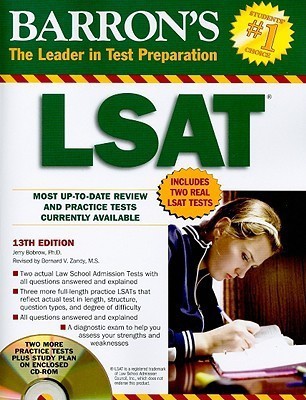-
Recent Posts
- IIT JEE Test: Comprehensive Guide for Aspiring Engineers
- CFA Certification: The Key to Advancing Your Finance Career
- Elevate Your Career with Okta Certification
- The Definitive Guide to CPA Certification: Elevating Your Accounting Career
- The Ultimate Guide to FRM Certification: Unlocking Career Success in Financial Risk Management
-
Follow Us
-
Archives
- July 2024
- June 2024
- May 2024
- May 2023
- October 2022
- July 2022
- April 2021
- August 2020
- July 2020
- July 2019
- June 2019
- January 2019
- December 2018
- September 2018
- August 2018
- June 2018
- April 2018
- February 2018
- January 2018
- August 2017
- July 2017
- April 2017
- December 2016
- November 2016
- October 2016
- September 2016
- August 2016
- July 2016
- June 2016
- May 2016
- April 2016
- March 2016
- February 2016
- January 2016
- December 2015
- November 2015
- October 2015
- September 2015
- August 2015
- July 2015
- June 2015
- May 2015
- April 2015
- March 2015
- February 2015
- September 2014
- August 2014
- May 2014
- April 2014
- February 2014
- January 2014
- December 2013
- October 2013
- September 2013
- June 2013
- May 2013
-
-
Categories
Tags
accountability admissions application Business Because business school CAT CAT Mock Test CET CFA CFA study schedule CPA entrepreneurship free study material gmat GMAT goal score gmat study partner gmat tutor gre INSEAD interview Ivy League linkedin LSAT magoosh MBA MBA entrance exam MCAT study partner mock test motivation practice questions recipe snacks start-up study study buddy study group studypal study partner study spots Study Tips superfood syllabus test prep time mamangement TimePrep
Your Expert Guide to Self-Preparation
For LSAT, GRE, GMAT, MCAT, and PCAT
By Jay Cutts
 Lead Author, Barron’s LSAT and MCAT Prep Materials
Lead Author, Barron’s LSAT and MCAT Prep Materials
Happy August!
REMEMBER:
The 3 Keys to Self-Prep Success:
1. A well-planned study schedule
2. High quality prep material
3. Peer support
If you’re still not doing well enough, look for a qualified tutor.
THIS MONTH:
Let’s take a quick look at where things stand for you.
MCAT/PCAT: You should be signed up for a test now, ideally for the end of August or into September. If you’re not scoring where you need to be, get the Barron’s book to study the timing, testing, and problem-solving strategies. You may benefit from a qualified tutor to work with you on strategy. Most people make more score improvement from strategy at this point than from science review alone.
LSAT: Unless you’re getting super high scores, plan to take the LSAT in December. If you’re not getting close to a winning score, consider the STEPS to the LSAT program. For a minimal cost it will boost your self-prep with a better study structure, advanced instruction, and connection with other STEPS students. If STEPS is still not enough, consider an experienced coach.
GRE/GMAT: You may need to take your test as early as October, though some deadlines may allow you to take the test as late as next February or March. By mid-month take a mock test. If you are not scoring where you need, look for a qualified tutor. A tutor who understands intuitive math strategies can be extremely helpful even if you only work together a few hours.
PREP HINTS:
This month we’re talking about Logical Reasoning (LR), a type of section on the LSAT and on the GMAT, where it’s called Critical Reasoning.
LR constitutes half the LSAT, so it’s extremely important. It’s the first section that I teach in the Barron’s LSAT Prep Book.
As with math, the logic questions are based on patterns that repeat. As you study LR questions, look for patterns. One of the most important types of logic tested in LR is if/then logic. This is also an important part of Analytical Reasoning, another section of the LSAT.
If/then logic can be relatively simple:
If it rains, I will play the piano.
Or it can be more complex:
Susan doesn’t comes to class unless she doesn’t go skiing the evening before.
I’ve seen grown adults weep trying to break down a complex if/then. Fortunately there are some powerful and simple tools for analyzing them. If you have trouble figuring out how to do this, you can refer to the Barron’s LSAT Prep Book, where I outline if/then tools thoroughly.
LR questions also include cause and effect arguments, analogies, and a number of faulty types of logic. The number of types of logic is relatively small and you can learn them through one of the better LSAT prep books.
You should also familiarize yourself with the types of questions. There are only a handful, plus variations. These include looking for a conclusion or an assumption, evaluating the effect of a new premise, and finding an argument that is parallel in logic to the original.
The Critical Reasoning on the GMAT is virtually identical to LR on the LSAT but some of the types of questions and logic on the LSAT are not tested on the GMAT.
Next month we’ll talk Analytical Reasoning, which is on the LSAT.
Jay Cutts is the director of the Cutts Graduate Reviews and lead author of the Barron’s LSAT Prep Book, Barron’s MCAT Prep Book, and Barron’s MCAT Flash Cards. He has helped thousands of students get into graduate and professional programs since 1990. He is the creator of the STEPS to the LSAT self-study support program.
Mr. Cutts offers free admissions planning help at:
Prelaw, Premed and Other fields
Comments are closed.

